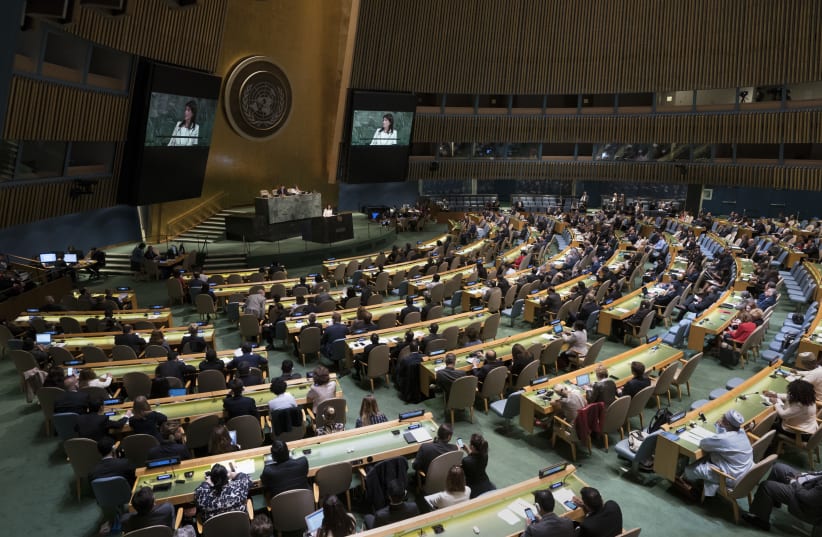WASHINGTON – The UN General Assembly adopted, by a consensus on Tuesday, a resolution that condemns Islamophobia and antisemitism – in the wake of the latest attack on two New Zealand mosques, in which 50 people were murdered and 50 others were injured. Israeli Ambassador to the UN Danny Danon led a diplomatic effort to change the wording of the resolution, which initially included a condemnation to Islamophobia but had no mention of antisemitism.The ambassador convinced a few states to avoid supporting the resolution if it did not mention antisemitism. Following the discussion at the UN, Danon said that “the memory of history seems to be fading with time, but our diplomatic efforts have shown that we will not allow the international community to remain silent while a wave of antisemitism spreads throughout the world.”Noa Forman, who represented Israel in the discussion, said: “We strongly condemn this horrifying act of terrorism. It is critical that the General Assembly sends a strong message against a religious base, hatred and hate crimes, but we must do it in such a way that unites us all.” She added: “Unfortunately, like many others, we felt that the negotiation process on this resolution could have been more inclusive and transparent and as a result, we could not co-sponsor the resolution despite the importance we all attach to the need to combat terrorism and other acts of violence based on religion or belief.”Jonathan Cohen, acting Permanent Representative of the United States to the United Nations, mentioned in his remarks the deadliest attack against the Jewish community in the United States: “Many of us in this room represent nations whose people who’ve been victims of terrorist attacks. Americans know all too well the pain of such attacks, most recently with the attack on the Tree of Life Synagogue in Pittsburgh. Yazidis and Christians victimized by ISIS also know this pain.” He said that “Opposing this terrorism unites countries around the world. While we’ve made progress in our fight against terrorism, we must remain vigilant. Together, we must continue to fight terrorism and all its forms wherever it exists.”New Zealand’s Ambassador & Permanent Representative to the United Nations Craig Hawke thanked Turkey for sponsoring the resolution. “New Zealand is humbled by the outpouring of sympathy and solidarity from the international community since March 15. We are particularly grateful to the global Muslim community who have stood with us during these dark days. March 15, 2019 is a day that changed New Zealand forever,” he said.“We welcome the resolution’s focus on the need to combat intolerance and discrimination, including its call for strengthened international efforts to foster a global dialogue on the promotion of a culture of tolerance and peace based on human rights and for the diversity of religions and beliefs.”
United Nations condemns Islamophobia and antisemitism
Israeli Ambassador to the UN Danny Danon convinced a few states to avoid supporting the resolution if it does not mention antisemitism.
